The agrarian
sector on
the boil
Hari Jaisingh
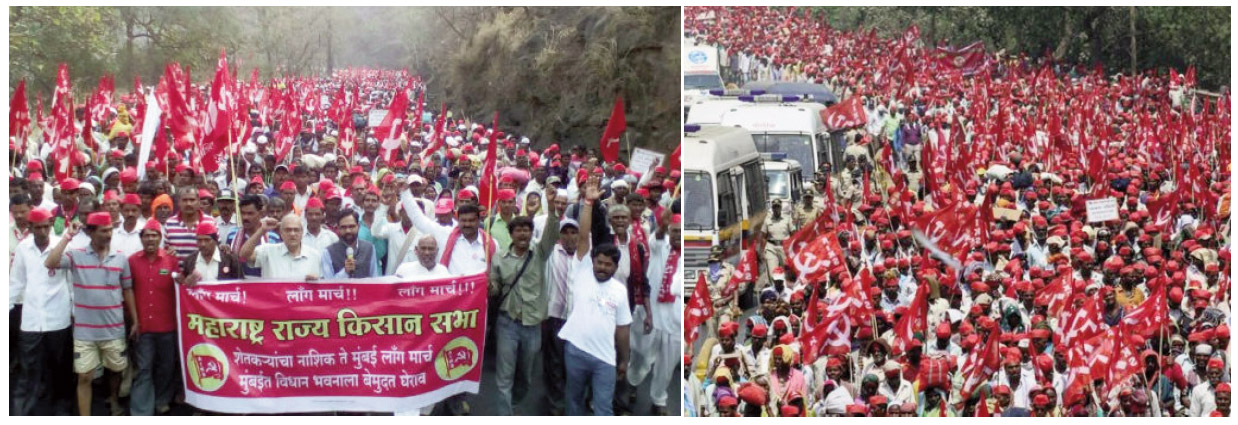
How come ruling
e s t a b l i s hme n t s ,
whether belonging
to the BJP or the
C o n g r e s s ,
invariably wake up
to pressing problems only when
the situation reaches a flash
point? This is the pattern in Indian
politics the country has been
witnessing for decades. The same
shades of dubious politics were
seen in Mumbai on March 12.
When a sea of agitating farmers
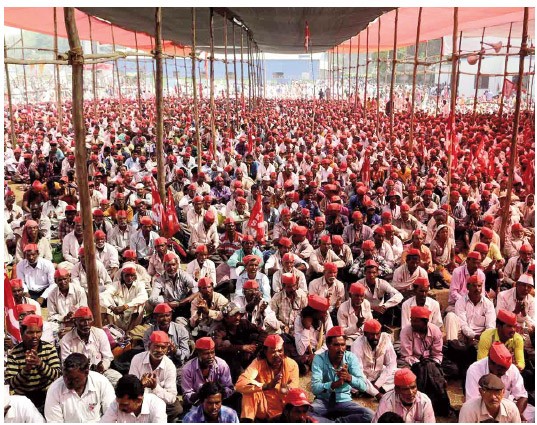 swamped Mumbai and pressure
mounted, the BJP-led government
said 'yes' to most of the farmers'
long-standing demands, including
their right to cultivate forest land
and extension of farm loan waiver
to those who had borrowed loans
between 2001 and 2008.
Chief Minister Devendra
Fadnavis met a team of the Leftaffiliated
All India Kisan Sabha
(AIKS) that led a 180 – km march
from Nasik to Mumbai, and told
the Vidhan Sabha that the state
swamped Mumbai and pressure
mounted, the BJP-led government
said 'yes' to most of the farmers'
long-standing demands, including
their right to cultivate forest land
and extension of farm loan waiver
to those who had borrowed loans
between 2001 and 2008.
Chief Minister Devendra
Fadnavis met a team of the Leftaffiliated
All India Kisan Sabha
(AIKS) that led a 180 – km march
from Nasik to Mumbai, and told
the Vidhan Sabha that the state
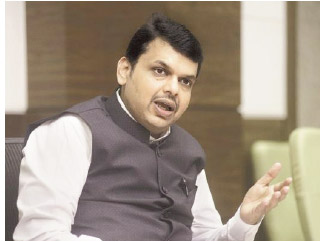 Devendra Fadnavis
government was "sensitive and
positive" to the demands of
farmers, many of them tribals in
pitiable conditions. The Chief
Minister has promised financial
aid to tribals with serious health
problems, minimum support price
(MSP) for farm produce, and
approved 31 water conservation
projects in the state's tribal north
and Nar-Par, Daman Ganga and
Gimar river linking project.
Devendra Fadnavis
government was "sensitive and
positive" to the demands of
farmers, many of them tribals in
pitiable conditions. The Chief
Minister has promised financial
aid to tribals with serious health
problems, minimum support price
(MSP) for farm produce, and
approved 31 water conservation
projects in the state's tribal north
and Nar-Par, Daman Ganga and
Gimar river linking project.
Devendra Fadnavis deserves
compliments for the belated
response to the farmers'
demands.
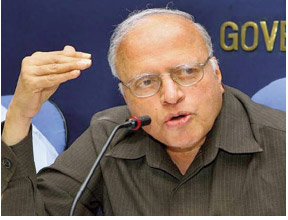 M S Swaminathan
However, my point is: why he
should have the neglected the
farmers' distress signals for
long, especially when their
suicide cases were hitting the
headlines on a regular basis?
Herein lies the political
leadership's tragedy across
states – Uttar Pradesh,
Maharashtra, Rajasthan and
Punjab. They have come out
with their own versions of farm
loan waivers without attending
to the basic problems farmers
are faced with.
M S Swaminathan
However, my point is: why he
should have the neglected the
farmers' distress signals for
long, especially when their
suicide cases were hitting the
headlines on a regular basis?
Herein lies the political
leadership's tragedy across
states – Uttar Pradesh,
Maharashtra, Rajasthan and
Punjab. They have come out
with their own versions of farm
loan waivers without attending
to the basic problems farmers
are faced with.
As it is, there are serious gaps
between what is officially claimed
and actual crop loan
disbursements from banks from
April 2017 to February 2018,
which is 40.3 per cent below the
amount for the corresponding
period of 2016-17. Also, the credit
crisis in the state underlines the
harsh fact of virtual collapse of
institutional credit system. This
could push farmers further into
the clutches of private moneylenders.
Not a happy situation
indeed!
Professor M S
Swaminathan, author of
the National Commission
on Farmers (NCF), in his
report had given several
vital recommendations
long back. But the
Narendra Modi
government did a
complete volte-face on his
suggestions. It did not
bother to give Minimum
Support Price for pulses
and oilseeds. Nor did it
respond to farmers'
demand of "complete and
unconditional loan
waiver".
Professor M S Swaminathan,
author of the National
Commission on Farmers (NCF), in
his report had given several vital
recommendations long back. But
the Narendra Modi government
did a complete volte-face on his
suggestions. It did not bother to
give Minimum Support Price for
pulses and oilseeds. Nor did it respond to farmers' demand of
"complete and unconditional loan
waiver".
In any case, Professor
Swaminathan does not see farm
loan waiver as a solution to
challenges being faced by
farmers. Says the
internationally renowned
authority on agriculture: "The
demand for loan-waiver is
indicative of non-viability of
farm economics. Every step
should be taken to make
farming economically viable".
He told Ravish Tiwari of Indian
Express: "I am sorry to say that
very simple and short-term
strategies like loan waiver is not
the best way to tackle the distress
of the farming sector", and added,
"loan waiver is only an easy way to
get a new farm loan. But writing
off does not guarantee repayment
of the next loan unless farming is
made viable"
Prof Swaminathan is right. Not
that he is out and out against loan
waiver but he wants it to be part
of "a strategy to revive the
economic health of farming". He
has underlined the need for
special attention towards
technology, trade and trainingrelated
requirement of the
farming sector to "shield farmers
from the grim situation they face".
Interestingly, terribly worried
that farmers' unrest may spill into
an election, the Modi government
in its February Budget did initiate
some measures on fixing
minimum support price for two
dozen commodities on the cost
plus 50 per cent basis. It has also
asked the Niti Aayog to frame "a
mechanism" to ensure farmers
get minimum support price "in
the eventuality of prices
crashing".
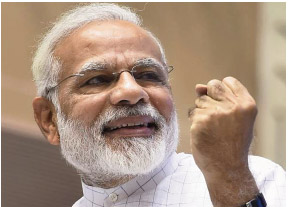 Narendra Modi
Still, I am disappointed by a
half-hearted approach of Prime
Minister Modi in an area which is
the life-line of the national
economy. Though the
Swaminathan Commission was set up by the UPA regime, it did not
do much to implement its crucial
decisions. In its 2014 electoral
manifesto, the BJP promised to do
so. In fact, it lifted large chunks
from the Swaminathan report. But
then, the ruling party has proved
to be no different from the
previous UPA regime.
Narendra Modi
Still, I am disappointed by a
half-hearted approach of Prime
Minister Modi in an area which is
the life-line of the national
economy. Though the
Swaminathan Commission was set up by the UPA regime, it did not
do much to implement its crucial
decisions. In its 2014 electoral
manifesto, the BJP promised to do
so. In fact, it lifted large chunks
from the Swaminathan report. But
then, the ruling party has proved
to be no different from the
previous UPA regime.
Actually, "public investment"
in agriculture and related areas
has fallen as a share of public
spending, and the promised
"increase in crucial related
areas are nowhere in evidence".
There are also serious
loopholes in the Prime
Minister's crop insurance
scheme.
The writing on the
wall is crystal clear.
The by-election results
in UP and Bihar are
warning signals to the
ruling establishments.
Prime Minister Modi
must realise that the
agrarian sector today
is under stress in view
of low growth, poor
earnings, large-scale
internal migration and
high rate suicides of
farmers.
It is worth recalling some of the
crucial recommendations of the
Swaminathan Committee. It
suggested extensive land reforms,
including distributing ceiling
surplus and waste lands,
prevention of diversion of prime
farm land and forest to the
corporate sector for nonagricultural
purposes and ensuing
grazing rights and access to
common property resources.
Its
emphasis was on public
investment, especially in
irrigation, drainage, land
development, water conservation
and promotion of conservation
farming and bio-diversity. It also
suggested comprehensive ground
water and surface-water
management in order to give
farmers sustained and equitable
access to these resources.
Today's policy-makers need
to acknowledge their own
disconnect from the farmers'
distress signals from the
ground. They need to coolly
reflect on their failures and
take remedial measures in tune
with the wisdom and
experience of farm experts like
M S Swaminathan.
The focus of regulatory
policies has to be on raising the
profitability of farm production, which, in turn could
lead to higher investments and
further raise farm productivity.
Equally crucial is formal credit
outreach to the poor and the
needy in rural areas and
reduction in interest rates on
institutional loans to simple 4
per cent.
It also needs to be kept in mind
that farmers reeling under dry
spells or sudden hailstorms that
destroy crops are provided
prompt compensation for the
losses. Technological
interventions that give farmers
timely advice on weather and
update them about sowing and
harvesting time and extension
services can also help farmers
from weather-related
misfortunes.
Equally crucial is livestock
rearing which has saved
farmers from penury. It is now
under threat from cow vigilants
who are allowed to run riot in
the states ruled by the BJP. This
has to be stopped. What
farmers need is a human touch.
Finally, the most disquieting
aspect of the farm crisis is poor
investment in agricultural R & D.
It is not even 0.4 per-cent of GDP.
The writing on the wall is
crystal clear. The by-election
results in UP and Bihar are
warning signals to the ruling
establishments.
Prime Minister Modi must
realise that the agrarian sector
today is under stress in view of
low growth, poor earnings, largescale
internal migration and high
rate of suicides. So, the farmers'
distress has to be attended to on
a war footing. Otherwise, it might
prove farmers' to be the nemesis
of the BJP establishments at the
Centre and in the States.
It is time the Prime Minister
attended to domestic problems
instead of frequently hopping
from one foreign country to
another!






 Devendra Fadnavis
Devendra Fadnavis M S Swaminathan
M S Swaminathan Narendra Modi
Narendra Modi